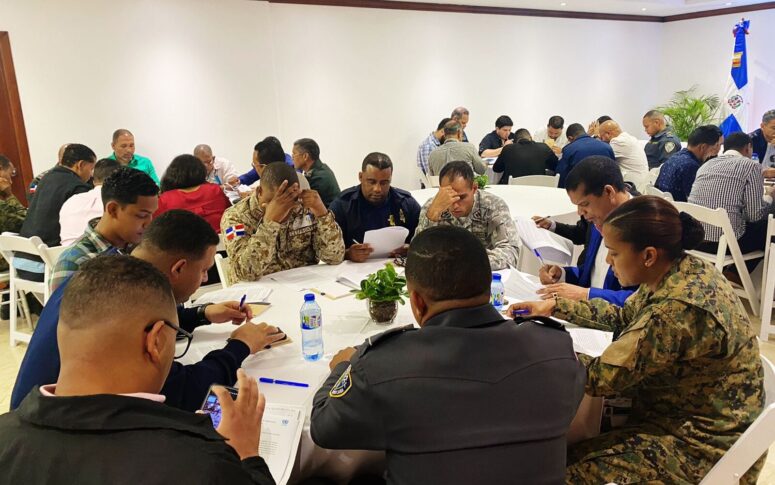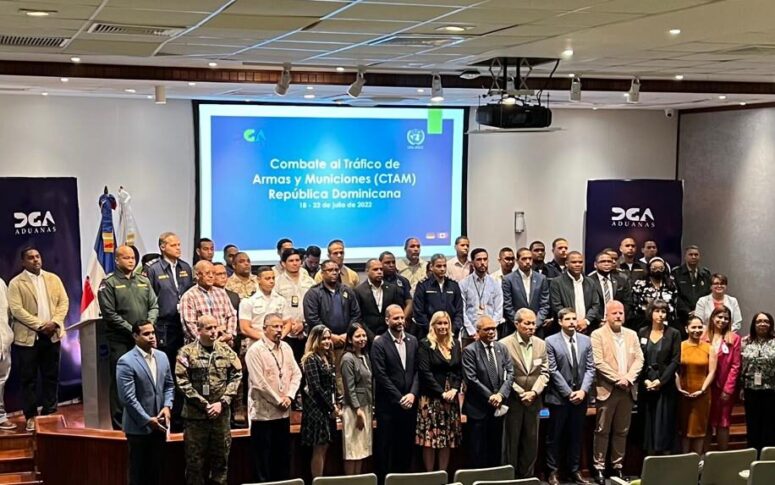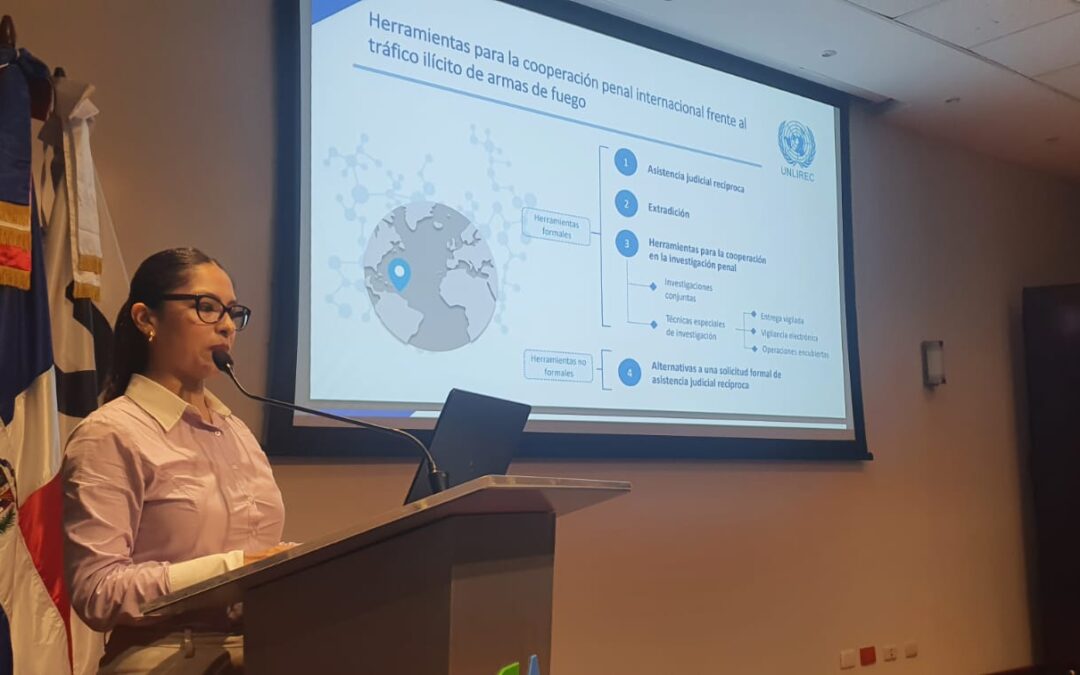From 18 to 22 July 2022, 47 representatives from various areas and sectors involved in arms control and combatting small arms trafficking in the Dominican Republic participated in the Course on Combating Trafficking in Arms and Ammunition (CTAM), organised by the United Nations Regional Centre for Peace, Disarmament and Development in Latin America and the Caribbean (UNLIREC) in a hybrid format.
The course provided national authorities with theoretical knowledge and technical tools to implement strategies seeking to prevent and combat the illicit trafficking of firearms and their ammunitions in line with international arms control instruments.
Representatives from the Interior and Police, Defence, Intelligence, Customs, the Attorney’s Office, the Ministry of International Affairs, Specialised Land Border Security Corps (CESFRONT), Body specialising in Airport Security and Civil Aviation (CESAC), the Dominican Postal Institute, among other institutions, participated and shared their experiences and challenges in addressing this problem.

The course included presentations by the Directorate General of Customs and CESFRONT, the Global Programme against Maritime Crime of the United Nations Office on Drugs and Crime (UNODC), and the Directorate for Democratic Security of the Central American Integration System (SICA).
For the Dominican Republic, as well as for other countries in the region, the illicit trafficking of firearms and ammunition poses a major threat to national and regional security. As a result, UNLIREC has developed the CTAM course for States in the region. It has been designed to strengthen State´s capacities in the fight against this transnational crime and also provides a space for interinstitutional exchanges, including on best practices, as well as for the development of international cooperation, which is essential in the fight against this crime.
UNLIREC supports the implementation of international commitments acquired by the Dominican Republic in the field of arms control.
The course CTAM was delivered in cooperation with the General Directorate of Customs of the Dominican Republic and was funded by the Government of Canada and the Federal Republic of Germany.


